Vocabulary development Vowels Worksheets for Ages 5-9
6 filtered results
-
From - To
Discover our engaging "Vocabulary Development Vowels Worksheets" designed for children ages 5-9! These interactive worksheets focus on enhancing vocabulary through fun activities centered around vowels. Each worksheet incorporates colorful illustrations and creative exercises that help young learners identify, recognize, and use vowel sounds effectively. From matching words to vowel phonics practice, our resources promote language development in a playful way. Ideal for homeschooling or classroom use, these worksheets cater to various learning styles, ensuring all children can improve their vocabulary skills while enjoying the process. Start building a solid foundation in language with our comprehensive vowel-focused worksheets today!
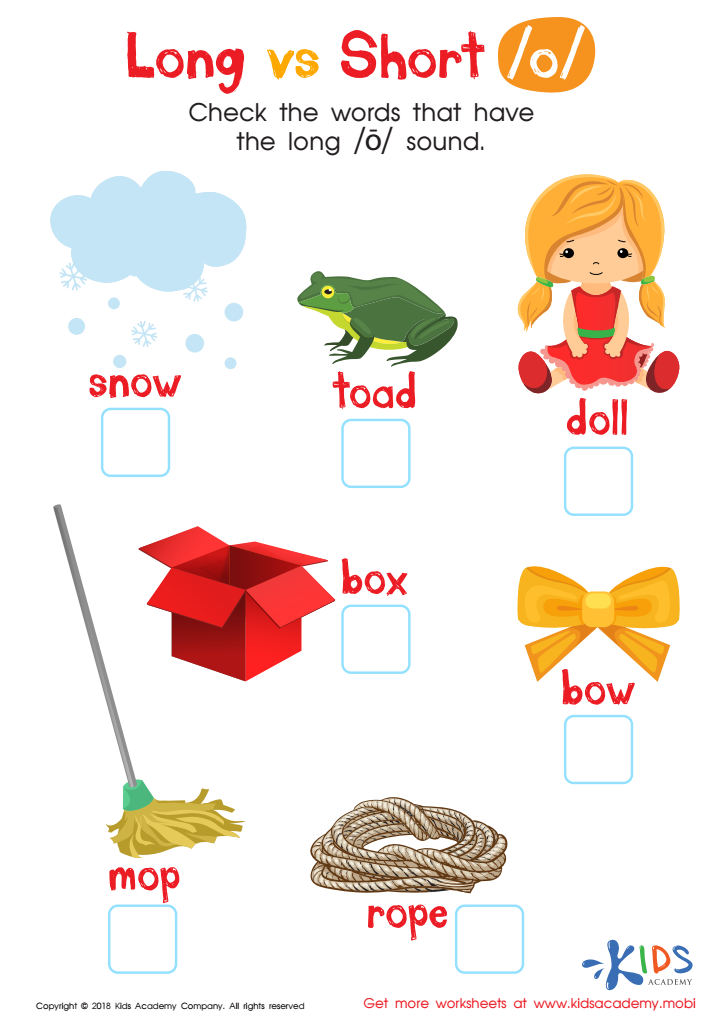

Long vs Short O Reading Worksheet


Vowel and Consonant Sounds: Assessment Worksheet
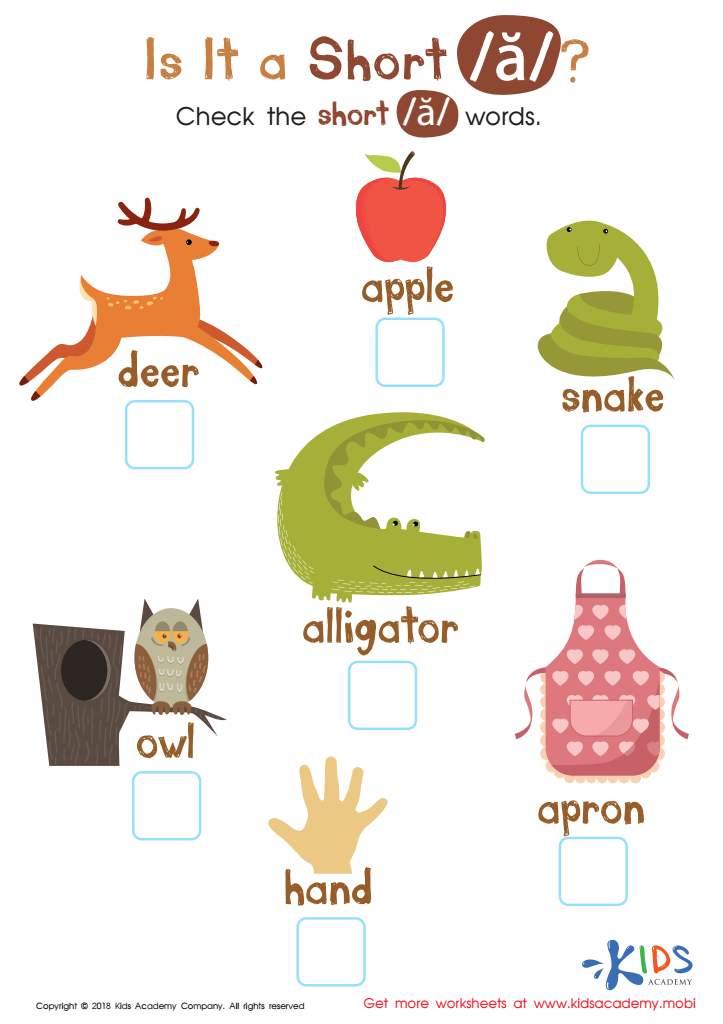

Is It Short A? Reading Worksheet
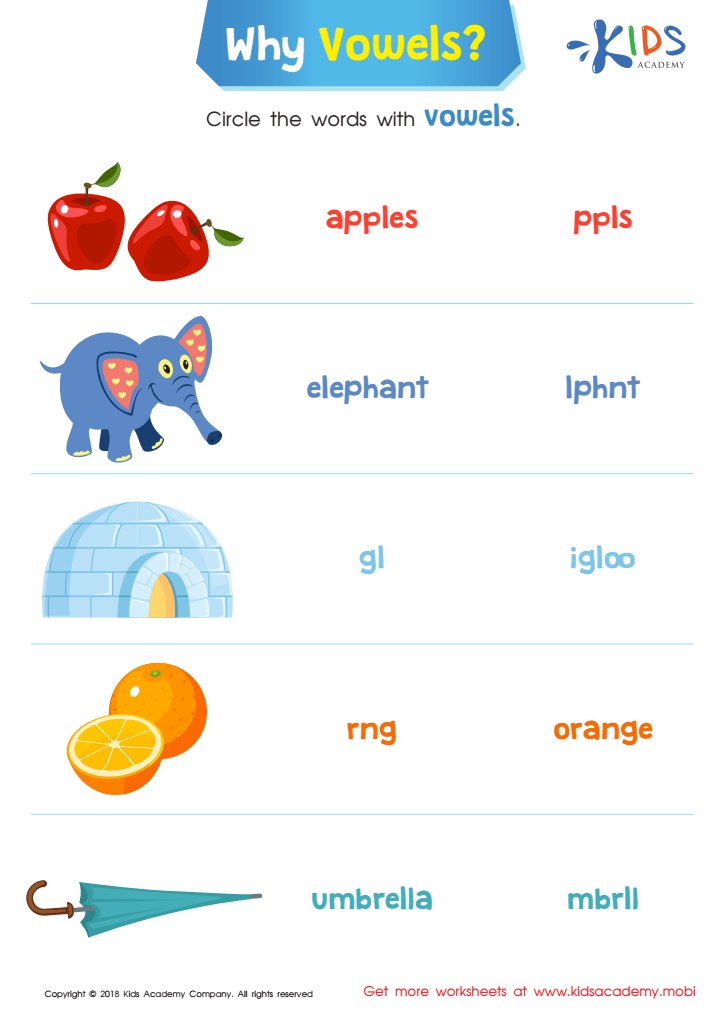

Why Vowels? Reading Worksheet
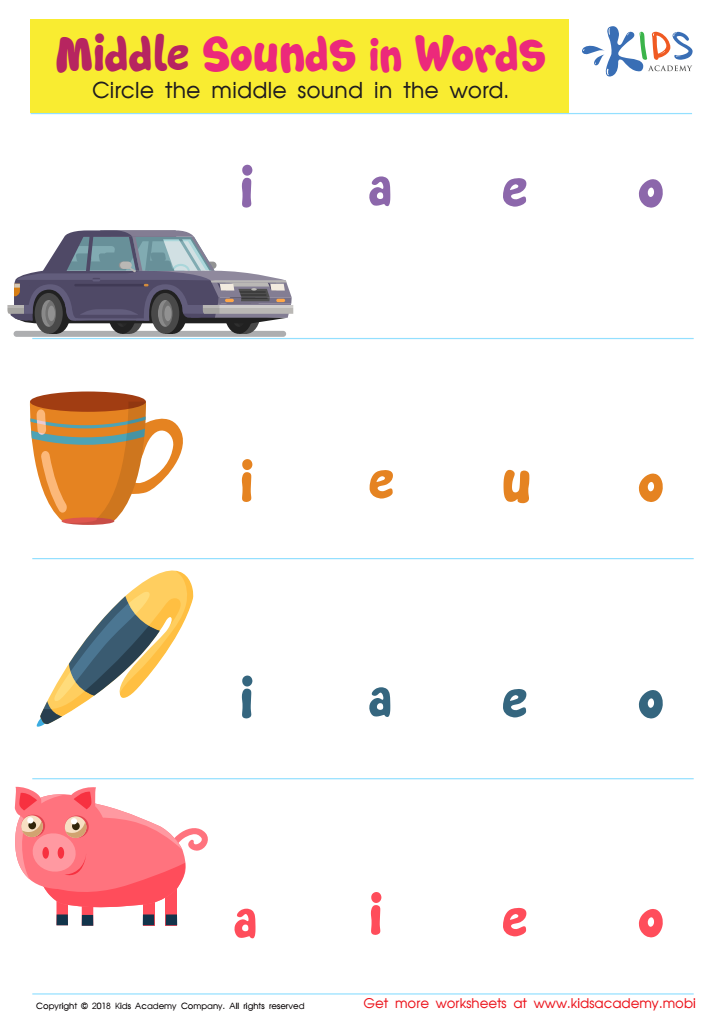

Middle Sounds in Words Worksheet
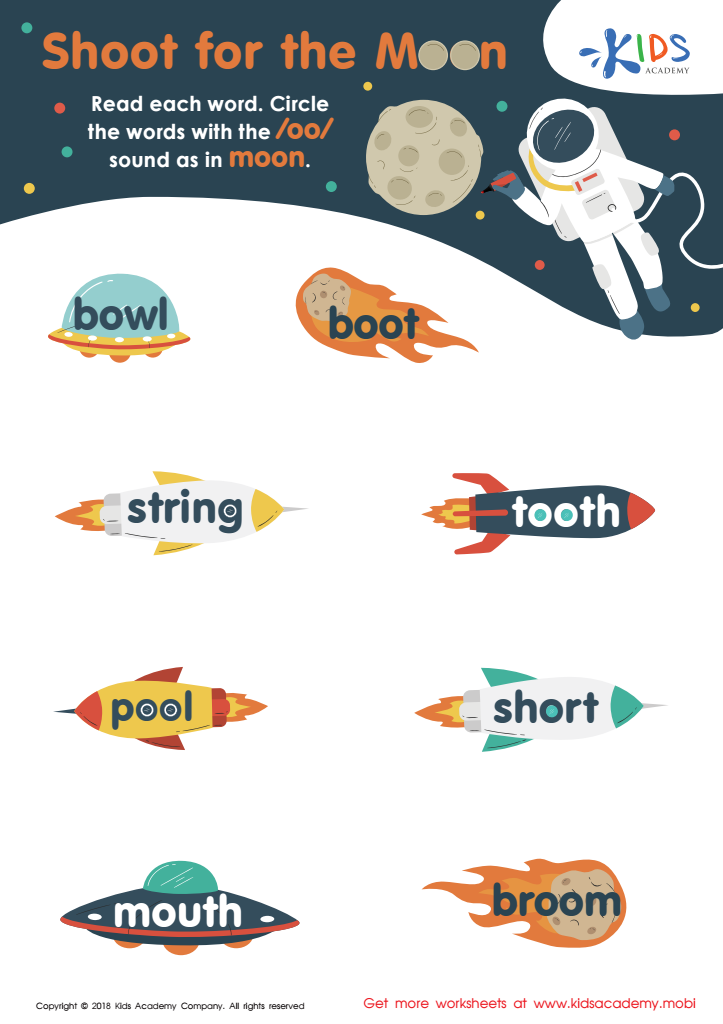

Reading: Shoot for the Moon Worksheet
Vocabulary development, particularly focusing on vowels, is crucial for children aged 5-9. During these formative years, children are rapidly acquiring language skills that lay the groundwork for their future reading, writing, and communication abilities. Vowels play a vital role in forming words and understanding their meanings. By emphasizing vowel recognition and pronunciation, parents and teachers enhance a child's phonemic awareness, which is essential for successful reading and decoding skills.
A strong vocabulary contributes to better comprehension, allowing children to grasp complex concepts, articulate their thoughts, and engage in effective conversations. When children understand the significance of vowels, they can expand their word choices, which enriches their expressive language capabilities. Furthermore, a robust vocabulary supports academic performance across subjects, as language proficiency is linked to success in both literacy and numeracy.
Encouraging vocabulary development can take the form of playful activities, songs, and interactive games. This approach not only makes learning enjoyable but also instills a love for words. Overall, a focused effort on vocabulary and vowel sounds equips children with essential communication tools, fosters their confidence, and prepares them for future educational challenges. Parents and teachers play a pivotal role in making this developmental stage both enriching and fun.

 Assign to My Students
Assign to My Students
















